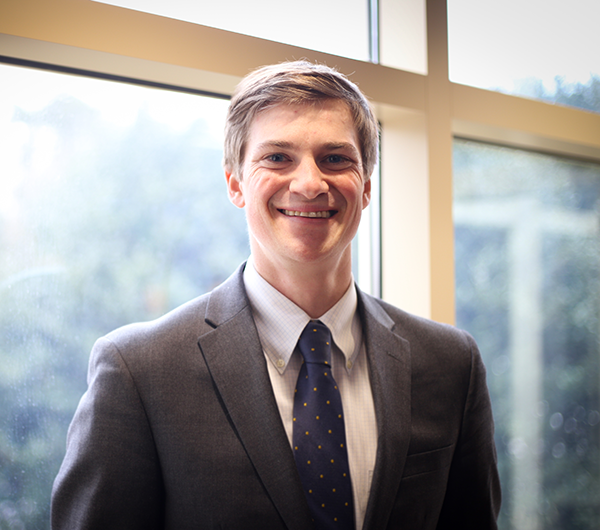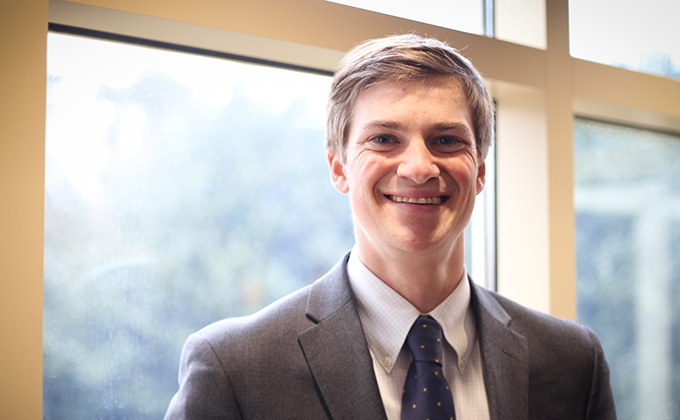- What does the course component involve?
- Participation, oral and written experiential exercises, and periodic short reflections. Students must attend a weekly class session that will explore, inter alia, professionalism, courtroom decorum, chambers confidentiality, judicial ethics, docket management, bench memo writing, oral argument preparation, and judicial opinion drafting. Among other things, students will participate in interactive classroom sessions and occasionally submit reflective journal entries. Experiential exercises provide students with an opportunity to apply lessons learned in the weekly session to their externship experiences and vice-versa. Students will also be graded on participation in class discussion and attendance at weekly sessions. Students receive six credits, including three credits for the externship and three for the classroom component.
- How will the course be graded?
- The course grade depends on participation, reflections, and short experiential assignments, such as drafting a bench memo and a judicial opinion. The experiential exercises provide students with an opportunity to apply lessons learned in the weekly session to the externship experience and vice-versa. For example, they include an ethics hypothetical, a bench memo, a list of questions for oral argument, and a judicial opinion. Students occasionally complete short post-exercise reflections considering which strategies worked for each exercise as well as what they might do differently next time.
- How many credits will I receive?
- Students will receive 6 credits, including 3 pass/fail credits for the externship and 3 honors pass/fail credits for the classroom component. The course will satisfy the Law School’s experiential learning requirement.
- Must I maintain a log of my hours and assignments?
- Yes. Each extern shall maintain a time log detailing the hours he or she works over the course of the externship. In addition, students only receive credit for non-administrative legal work although it is permissible and strongly encouraged that they also be permitted to perform other types of work and projects, including shadowing oral arguments or court hearings or attending staff meetings as these present excellent learning opportunities. Students must complete at least 35 hours of work per week of an externship lasting no less than eight weeks and produce at least 3 pages of original, substantive legal writing per week as part of the externship. (This does not mean that students must produce 3 pages per week. This page limit does not include work product produced as a result of the classroom component.)
- What are experiential exercises?
- Experiential exercises are opportunities for students to apply course lessons to the externship experience and vice versa. These exercises may include an ethics hypothetical, a bench memo, a list of questions for oral argument, and a judicial opinion. Students occasionally complete short post-exercise reflections considering which strategies worked for each exercise as well as what they might do differently next time.
- How do I prepare for the externship?
- The Program will prepare you to hit the ground running. Prior to commencing the externship, Professor Perdue will provide students with a comprehensive reading list of key cases and court rules relevant to their court’s jurisdiction. During the spring semester prior to the externship, she also hosts an informative orientation session that covers professionalism, ethical issues, confidentiality, etc. Students also attend a research strategies session during the spring semester that provides insight into how to efficiently and effectively research the areas of law addressed.
- Will Professor Perdue be in residence in Washington, D.C.?
- Yes. Professor Perdue lives and works in Washington, D.C., throughout the Program, and the course is taught on-site at the Wake Washington Center located at One Dupont Circle. Professor Perdue will lead the field trips and be present at the networking events to help you meet and mingle with D.C. Deacons.
- What are my obligations as an on-site supervisor?
- Minimal. On-site supervisors have few obligations. We simply ask that they provide students with substantive legal work and other educational opportunities. Supervisors must also meet with externs at least once during the middle of the externship to provide constructive criticism and feedback on performance and again at the end of the externship to provide feedback and tips for successful future performance.
- Aside from its educational value, are there any other advantages for students who participate in the Program?
- Definitely. We all know that many of the most valuable lessons are learned outside the classroom. Therefore, informative programming regarding related issues, such as Q&A sessions with current or former law clerks and judges, will also be provided throughout the summer along with occasional networking events aimed at allowing Wake students to meet and mingle with current and former law clerks, Wake alumni working in Washington, and other Wake students who are externing in Washington, D.C. Students will also have an opportunity to attend Washington, D.C. alumni receptions and other ABA and law firm networking events. Such programming and social events will provide excellent networking opportunities, which are invaluable to students in this challenging legal climate. D.C. is all about relationships, and the Program will help students build meaningful ones with D.C. Deacons.
- Am I eligible to participate in the Program?
- The Program is open to first-year and second-year law students earning a J.D. and to rising third-year law students earning a dual degree who are in good academic standing at the law school and who wish to receive academic credit through their participation in a summer judicial externship in Washington, D.C.
- Is the externship paid?
- No. Students will not receive any compensation for the externship. However, students will receive six hours of course credit.
- Is housing provided?
- No. Students arrange and pay for their own housing and transportation, but the Office of Career and Professional Services and Professor Perdue may be able to offer some assistance to students in finding affordable housing. Furthermore, the Wake Washington Center offers affordable student housing in the same building where the class meets in Dupont Circle, which is one of the most popular neighborhoods in D.C. It is also convenient to the courts. Many students have also lived at the GW, American University, and Georgetown Law School dorms, which are also in great neighborhoods. Another resource is WISH housing. In addition, some participating courts provide a metro transit subsidy for externs.
If you have a question that is not answered above, please let us know. You can contact the D.C. Summer Judicial Externship program director, Professor Abigail Perdue, at dcsje@wfu.edu.

“The externship and course components of the D.C. Summer Judicial Externship helped me expand my career vision and develop the skills necessary to make it happen.”
— John Allen Riggins (JD '18)


